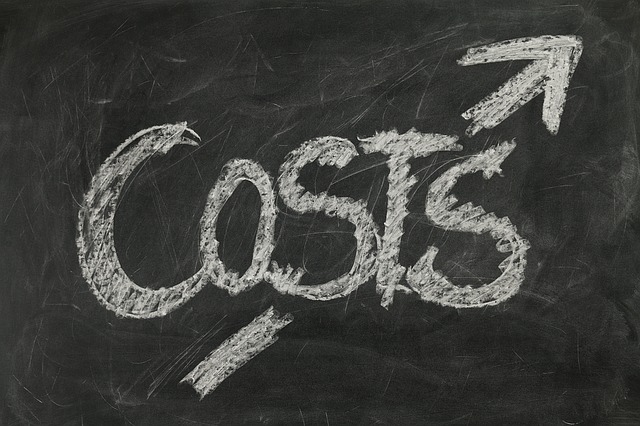Unlock Festive Funds: Navigating Christmas Loans for a Stress-Free Holiday Season
Holiday spending is poised to reach new heights in 2023 – with estimates reaching up to $967 billion. This is a 3% to 4% increase over 2022.
Yet, the holiday spirit doesn't reach every household equally. For those grappling with inflation or a struggling tech job market, the affordability of seasonal joy remains a challenge. In such cases, considering short-term financial solutions like a Christmas personal loan for 30 days may be a way to ensure the holiday season is celebrated without financial strain.
What Is a Personal Loan?
Before exploring the topic of Christmas loans, let's begin with a clear definition of what constitutes a personal loan. A personal loan is a sum of money borrowed from a financial institution that can be used for a variety of personal and unexpected expenses.
Personal loans come in two main types: secured and unsecured. Secured loans require collateral, such as a car or house, which the lender can claim if the loan is not repaid. Unsecured loans do not require collateral and are given based on the borrower's creditworthiness.
What Are Christmas Loans?
Christmas loans, also known as holiday loans, are unsecured personal loans that cover gifts, trips, and festivities during the holiday season.

These loans typically meet the following criteria:
- Unsecured: No collateral like a home or car is required.
- Loan Amounts: Range from as little as $500 to $5,000 or more.
- APR (Annual Percentage Rate): Varies approximately from 6% to 36%.
- Repayment Terms: Usually between one to seven years, with the intent to pay off quickly after the holiday season.
- Credit Score Consideration: Maintaining a credit score of at least 670 will improve your chances of qualification. A score over 720 may help you receive more favorable terms.
- Fast Funding: Most lenders will offer fast funding in a few days upon approval.
- Fixed Payments: Monthly payments, which consist of the same amount of principal plus interest and total loan costs, are known upfront, ensuring consistent repayment amounts each month.
Where Can I Get a Holiday Loan?
Whether it's for buying gifts, traveling to see family, or simply ensuring you can celebrate without financial stress, a holiday loan can provide the necessary funds to make the season bright. Below are the types of institutions where one may be able to obtain a holiday loan, each with its benefits and offerings:
Direct Lenders: Quick and Efficient Holiday Loans
Direct lenders are financial institutions or private entities that provide personal short-term loans directly to borrowers. This approach streamlines the loan process by removing intermediaries, which can lead to faster decision-making and quicker access to funds. Additionally, dealing with a direct lender often means receiving more personalized service and support.
Banks: Traditional and Reliable Sources for Holiday Loans
When borrowing from a bank, you'll be working with a regulated entity known for its stability and wide range of financial products. This traditional lending approach often involves a more comprehensive evaluation of your financial history, which can contribute to more secure lending decisions. Moreover, dealing with a bank means accessing professional financial advice and customer service, which can be invaluable for making informed financial decisions.
Credit Unions: Personalized Holiday Loan Solutions
Credit unions are member-owned, non-profit financial institutions offering personalized holiday loan solutions, often at competitive rates. Membership, based on factors like location or employment, is required to access their services. Known for their community focus, credit unions may provide more flexible loan terms and favorable rates, especially for members with varied credit histories.
Here are some credit unions you can explore this holiday season for a loan:
- Alliant Credit Union: Provides emergency Christmas loans without an origination fee, featuring APRs from 6.24% to 17.24%. Alliant Credit Union caters to those with a minimum credit score of 640. Membership is required to access these loans.
- Teachers Federal Credit Union: Offers holiday loans with a 7% fixed APR, available up to $5,000. These loans have a maximum term of 24 months, with an estimated monthly payment of $44.78 per $1,000 borrowed.
- Members Plus Credit Union: Features holiday loans with APRs starting as low as 8.49%. These loans offer terms of up to 12 months, providing an alternative to high-interest credit cards for covering holiday expenses.
What Do You Need to Qualify for Holiday Loans?
Regardless of the financing provider you choose, you will be required to meet some basic eligibility criteria for holiday loans.

Each lender sets their own requirements, but generally, borrowers will need to meet the following criteria:
- Age: Must be at least 18 years old
- Proof of Income: Verification of income or employment through documents like pay stubs or bank statements
- Identification: A state-issued ID to prove identity
- Bank Account: An active checking account for loan disbursement
- Credit Score: While the specific score required can vary by lender, your credit score affects the loan amount and interest rates you might be eligible for. Generally, lenders often look for scores in the range of 600 to 700 as a minimum.
- Contact Information: Your current contact details so the lender can reach you if necessary
- Tax Information: Copies of your tax returns, such as your 1040 form from the previous year
- Employment History: Information about your current employer and employment history from the past five years or so
Please note that meeting these requirements does not guarantee approval for a holiday loan.
How to Apply for a Christmas Payday Loan
After you’ve determined the general requirements and gotten your documents gathered, you can begin the application process for a holiday loan. Some lenders offer the convenience of online applications, but you’re always free to visit a brick-and-mortar storefront if you prefer.
Here's a step-by-step guide on how to apply for a Christmas payday loan:
- Choose a Lender: Research to find competitive rates and confirm the lender's licensing in your state via regulatory agencies.
- Application Process: Apply online or in person, providing necessary personal and employment details.
- Documentation: Prepare recent income proof and have your ID and bank account information on hand.
- Terms and Conditions: Understand the loan's interest rate, fees, and repayment conditions to avoid costly surprises.
- Submission and Approval: Accurately complete and submit your application, then await the lender's processing, which may include employment verification.
- Disbursement: Once approved and signed electronically, typically receive funds within one business day, with some lenders offering even faster options.
- Repayment: Budget to repay the loan in accordance with the loan terms determined by your lender to avoid additional fees.
Benefits and Downsides of Christmas Loans
While a Christmas loan can bridge the gap between your holiday budget and expenses, it's useful to weigh its benefits against the potential downsides. A side-by-side comparison can help clarify whether such a loan is a good financial move for you or if it might lead to more significant financial woes in the long run.
Below is an overview that can assist you in making an informed decision:
|
Benefits of Christmas Loans |
Downsides of Christmas Loans |
|
Fast Funds: Access to quick cash can address the emergency need for money during the holiday season. |
High-Interest Rates: Loans specifically for Christmas can come with high interest rates, increasing the total repayment amount. |
|
Fixed Repayments: Knowing the exact repayment amounts can help with budgeting during the holiday period. |
Debt Cycle Risk: There's a risk of entering a cycle of debt if the loan isn't repaid promptly, leading to borrowing more to cover past debts. |
|
Convenience: The process is often quick and can be completed online, making it convenient for busy holiday schedules. |
Additional Fees: Late payments can incur fees, adding to the cost of borrowing. |
|
Avoiding Overdraft: A Christmas loan can prevent overdraft fees by providing the funds needed for holiday expenses. |
Credit Score Impact: Failing to repay on time can negatively affect your credit score, which has long-term implications. |
|
No Collateral Required: These loans are typically unsecured, meaning you don't need to put up any assets as collateral. |
Financial Strain: Repaying a loan after Christmas can create financial strain, particularly when faced with other post-holiday expenses. |
|
Set End Date: There’s a clear end date for when the loan will be paid off, which can help with budgeting. |
Impulse Spending: The ease of getting a loan can lead to impulse spending and purchasing more than what's necessary. |
How Much Money Can You Borrow with Christmas Loans?
Loan amounts for Christmas range from $500 to over $5,000, with most lenders offering a minimum of $500. Maximum amounts vary, with some capping at $2,000 and others offering more than $5,000 for qualified borrowers.
Eligibility and terms depend on credit scores – a score of 670 or higher may be needed for larger loans. Those with lower scores may face higher interest rates or smaller loan amounts. Interest rates start around 7% for excellent credit but can exceed 30% APR in some cases.
How to Pay Back a Christmas Loan
Christmas loans are specifically designed as short-term solutions to holiday spending, and knowing how to repay them effectively is key to maintaining financial health.
One popular repayment method is the single payment option, often resembling a payday loan. In this setup, borrowers are expected to repay the entire loan amount in one lump sum. The due date for this payment usually coincides with the borrower's next payday after receiving the loan, typically within two to four weeks. Borrowers in this scenario often agree to a direct withdrawal from their bank account on the due date.

Alternatively, the installment payment option allows you to divide the total loan amount into smaller, fixed payments. With this arrangement, a set amount is due each month instead of a one-time lump sum. The repayment schedule is determined based on the borrower's income and repayment capacity, varying from a few months to a year. Installment plans are advantageous as they can be customized to fit the borrower's budget, with predetermined amounts due at regular intervals, facilitating easier management.
Choosing the right repayment option depends on the individual financial situation. A single payment is often preferred by those who can comfortably cover the entire amount with their next paycheck. Conversely, an installment plan can be a more manageable approach for those who need to distribute the payments over time to maintain financial balance.
Alternative Financing Solutions for the Holidays
While holiday cash loans are a common solution, there are several alternative financing options that can help you navigate this period without the need for a traditional loan.
Buy Now, Pay Later: This is a popular option where you make a down payment, take the purchase home, and pay off the balance over time. Some providers even offer options with zero or low APRs.
- Savings Account: Create a dedicated savings account for holiday costs and save monthly to build a fund specifically for holiday spending.
- Cash Back and Rewards: Utilize shopping apps and cashback programs to earn rewards throughout the year and use them to offset holiday costs.
- Year-Round Gift Buying: Purchase gifts throughout the year, especially during sales, to spread out holiday expenses and potentially snag deals.
Sum Up
In summary, a thoughtful approach to emergency Christmas loans can preserve the holiday's joy without financial regrets. It's important to borrow responsibly, comprehend loan terms, and explore other funding methods. Plan, budget, and borrow sparingly to maintain the festive spirit and ensure a financially stable new year.





